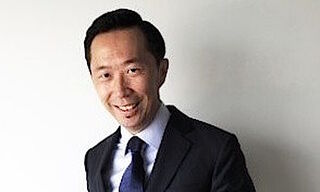Franco Polloni: «EFG Has Benefited From Credit Suisse's Turmoil»
Franco Polloni would love to have a nonstop train line between Zurich and Lugano. Zurich, which is his second home, is a financial center with enormous dynamism, he told finews.asia in an interview.
Mr. Polloni, how can EFG International still grow in the Swiss market?
A lot of people don't know this, but we have always had a large Swiss client base. It is our most important segment and an area where we can continue to grow. Then there is the international clientele who hold accounts with us in Switzerland. We also see potential in the business with independent asset managers.
Zurich has gained enormous momentum in recent years. Many clients who used to go to Geneva, such as those from the Middle East or from Central and Eastern Europe, now come here. In my opinion, Zurich is increasingly becoming a hub for clientele from the Arab states. One advantage we have is that we are more flexible in terms of segmentation.
What do you mean by that?
Our customer advisors don't have to limit themselves to one customer group or one market. Of course, everyone has their home market, but if someone wants to serve Lebanese customers as well as Israeli ones, that's possible. Or if someone has Swiss customers, he or she can still serve «non-domiciled residents.»
«I always give my people three priorities»
Our platform gives our client advisors the opportunity not only to maintain their network of relationships but also to develop it further.
In what way?
We are an organization with a very flat hierarchy. There are no «layers» with pure management functions. The account manager reports to the branch manager, who reports to the regional manager, and at the top there is only the CEO. That's it. In addition, our customer advisors have a certain amount of flexibility when it comes to pricing.
Flat hierarchies are a good thing. How do you maintain control over your people?
I always give my people three priorities: reputation, customer service, and performance. Reputation is the most important.
What do you mean by that? Have you benefited from the turmoil at Credit Suisse?
We have benefited because clients now see us as an alternative to the big banks. Some clients have transferred the bulk of their assets to us.
One of the keywords you mentioned was customer service, something all banks claim to prioritize.
Yes, but I am convinced that we are better than others in this respect because we employ experienced customer advisors. They are all people with long experience, some of whom have lived through several stock market crises themselves.
«When I started in 2017, there were no queues at our front door»
On top of that, all of our client advisors have international experience. Against this backdrop, the bank has gained tremendous visibility in recent years.
How difficult is it to find talent today?
I can tell you that when I started in 2017, there were no queues at our front door. But today, and this may sound a bit arrogant, we are very selective. The bank has gone through a big transformation. Today, the industry sees that we are a major player, which is important.
Are you looking for more staff?
Yes, we continue to look. And we offer a platform as a bank that our advisors can be proud of. We offer mortgage loans, Lombard loans and financial advice. In short, we are there for the needs of our Swiss clientele.
Would an acquisition in Switzerland be conceivable?
Our CEO, Giorgio Pradelli, says: «We are buyers.» That means we are looking closely at the market.
And?
The consolidation process will only really get going if the stock market declines over a longer period. However, we are constantly looking around. We are engaged in informal conversations. But the fact is, everyone is talking to everyone. It will still take some time. The big consolidation is not going to happen tomorrow.
How have you implemented the sanctions against Russian customers?
Russian clients do not make up a significant proportion of our business. The corresponding assets amount to a single-digit percentage of our total assets under management (AuM) of 167 billion Swiss francs as they currently stand (as of the end of March 2022). We no longer accept business from Russians domiciled in Russia. In that sense, I'm glad EFG International has a broadly diversified portfolio of clients.
«Data management is the be-all and end-all of wealth management.»
Of course, at the beginning of the sanctions, it was burdensome for all banks to sift through client relationships. Luckily, our relevant department was well prepared and knew exactly what to do. We are implementing the sanctions globally because we have a consolidation obligation in this country.
In principle, Swiss banks have always been very cautious about dealing with Russian clients. We must not forget that Switzerland has a long tradition of adopting foreign sanctions, be it EU or US sanctions. We cannot afford to stand on the sidelines, as in doing so we would be denied access to the US dollar. Our customers have always known this.
For Russians with a Russian passport who have nothing to do with Russia or the war, banking internationally has become very difficult. This war is a tragedy for all concerned.
Swiss banks sanctioning clients has led to enormous uncertainty worldwide. Do you think this will hurt the financial center in the long term?
That is the consequence. If we no longer serve certain client groups, other financial centers, such as Dubai and Singapore will rush in. Due to our obligation to consolidate under Swiss law, we will not be able to catch up with other institutions in such financial centers.
What are your priorities now?
In these difficult times, we have to be close to our customers. The volatility in the markets is very challenging for everyone. That is now my and my team’s top priority.
What does being close to customers mean?
For me, data management is the be-all and end-all of wealth management. Our relationship managers each have around 100 clients, and I always say, «Each and every one of you has to go through the list of clients every day and see how you can serve each and every one of them in the best possible way». That's why evaluating the interactions between our consultants and their customers is important and also explains our good performance in all regions.
«Within our Swiss market, the Ticino business is very profitable today»
The second priority is the further acquisition of customer advisors. We are very active there at the moment. People are looking for security and an employer with a clear vision. We can offer both.
Is EFG International profitable in Ticino?
Yes.
What is the composition of your clientele in Ticino?
With the acquisition of BSI in 2017, we also took over the clients of the former Banca del Gottardo, which was part of BSI. These were mostly Swiss and international customers. Until today, this has meant that we have a majority of corresponding customers in Ticino, and not just Italian customers, as is often assumed. Within the Swiss market, the Ticino business is very profitable today.
How do you explain that?
During the BSI integration, we suffered a lot because EFG International was still considered a new bank in Ticino at that time. At the same time, there was the reputational issue of BSI after its involvement in the 1MDB case in Malaysia. Nevertheless, we managed the turnaround and people in the region perceive us as a Ticino bank again. They have great confidence in us and we enjoy a good reputation.
The Lugano site with over 500 employees is now EFG's largest in the world and provides services for the entire group. We are the only ones with all business lines – including private banking, capital markets, services for independent asset managers, HR, risk management – on site.
In this respect, we are the only international bank with such a strong local presence in Ticino.
Are the two big Swiss banks downsizing in Ticino?
I can't say whether they are, but I have the impression that they have moved many important functions to German-speaking Switzerland.
How much money do you manage in Ticino?
In the Switzerland and Italy region, we manage around 46 billion francs. After Zurich and Geneva, Ticino is the third-largest private banking location in Switzerland. However, we do not disclose figures for the individual locations. With our business with independent asset managers in Ticino, we are the market leader. We are very strong in Ticino.
Would you rather be Swiss-German?
No, but Zurich is like a second home to me. I live in Malcantone, but I studied in Zurich and still have colleagues here. So I'm very familiar with the Swiss-German culture.
Meanwhile, Zurich and Lugano are also very close to each other. Ticino is the canton between the two cosmopolitan cities of Zurich and Milan.
For me personally, it would be even better if there were a nonstop Zurich-Lugano rail line (laughs).
Franco Polloni has been Head of Market Switzerland and Region Italy at Swiss private bank EFG International since May 2017. Previously, he worked in various management roles at Banca del Gottardo, Banca della Svizzera Italiana (BSI), which was acquired by EFG International in 2016, and Banca del Ceresio in Lugano. He started his professional career in 1993 in audit and tax consulting at the then ATAG Ernst & Young in Zurich. He later moved to the Federal Department of Foreign Affairs (FDFA), where he worked for the then Federal Councilor Flavio Cotti. He got into banking in 2001.




























